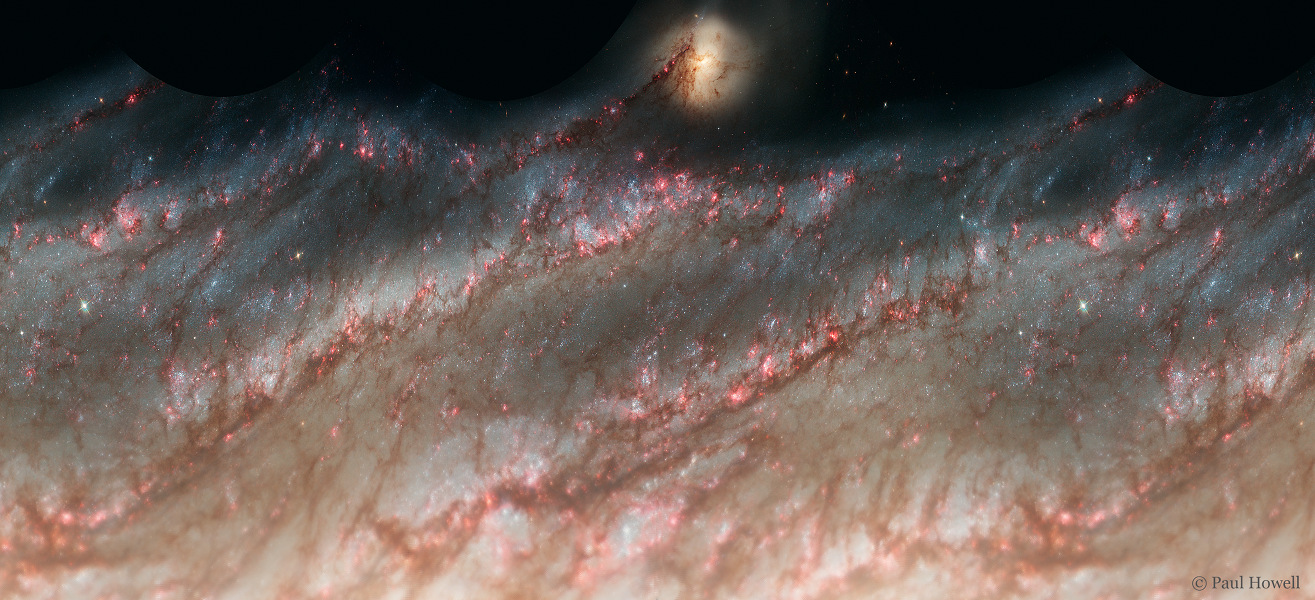2020年8月21日
Unwinding M51
Image Credit & Copyright: Data – Hubble Heritage Project, Unwinding – Paul Howell
Explanation: The arms of a grand design spiral galaxy 60,000 light-years across are unwound in this digital transformation of the magnificent 2005 Hubble Space Telescope portrait of M51. In fact, M51 is one of the original spiral nebulae, its winding arms described by a mathematical curve known as a logarithmic spiral, a spiral whose separation grows in a geometric way with increasing distance from the center. Applying logarithms to shift the pixel coordinates in the Hubble image relative to the center of M51 maps the galaxy’s spiral arms into diagonal straight lines. The transformed image dramatically shows the arms themselves are traced by star formation, lined with pinkish starforming regions and young blue star clusters. Companion galaxy NGC 5195 (top) seems to alter the track of the arm in front of it though, and itself remains relatively unaffected by this unwinding of M51. Also known as the spira mirabilis, logarthimic spirals can be found in nature on all scales. For example, logarithmic spirals can also describe hurricanes, the tracks of subatomic particles in a bubble chamber and, of course, cauliflower.
Tomorrow’s picture: light-weekend
拉直后的星系M51
影像提供与版权: 数据提供 – Hubble Heritage Project, 拉直 – Paul Howell
说明: 在这幅再处理过的2005年哈伯太空望远镜拍摄之M51影像里,这个宏伟螺旋星系的螺旋臂,经过数位转置拉直。 M51是原始的”螺旋星云”之一,它的螺旋臂可用名为对数螺线的数学曲线来描述,因为其螺旋臂和星系中心的距离,呈几何级数递增。因此,把哈伯M51影像的像素相对星系中心之坐标取对数,就能把这个星系的螺旋臂转置成这些对角直线。这幅转置后的影像,明确的指证这些螺旋臂,就是发生恒星诞生活动的地方,因为它们和粉红恒星形成区和泛蓝年轻星团的分布重合。此外,位在影像顶端的伴星系NGC 5195,看似改变了通过它前方的旋臂之走向,而其本身则几乎没受转置影响。亦称为神奇螺旋的对数螺线,常出现在各种尺度的自然现象里。例如:对数螺线可用来描述台风、气泡室的次原子粒子迹线、以及花椰菜。
明日的图片: light-weekend



